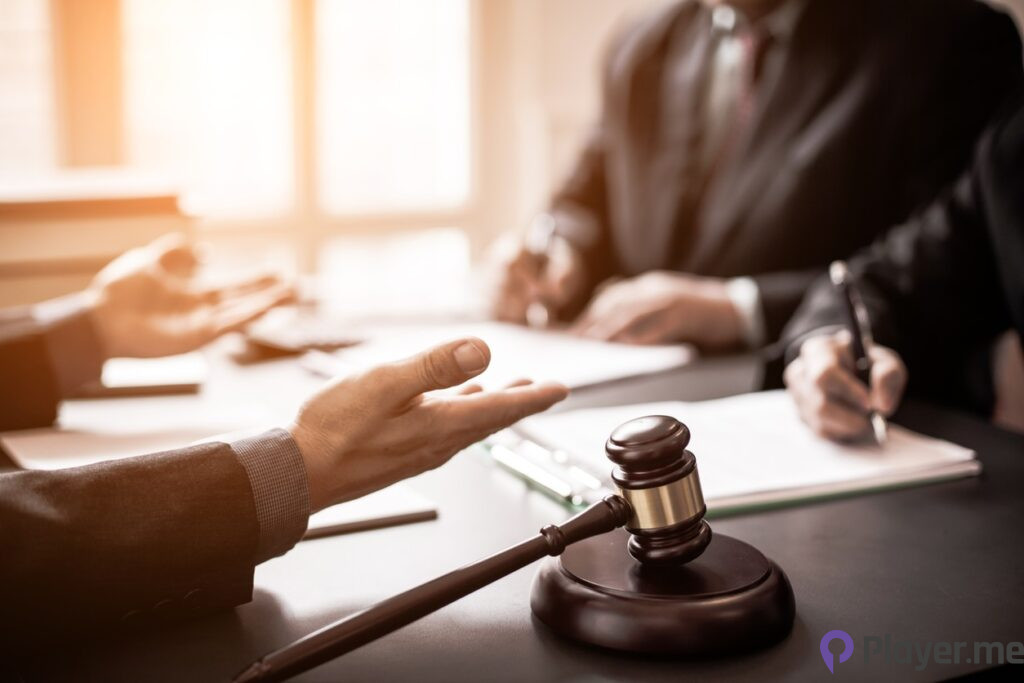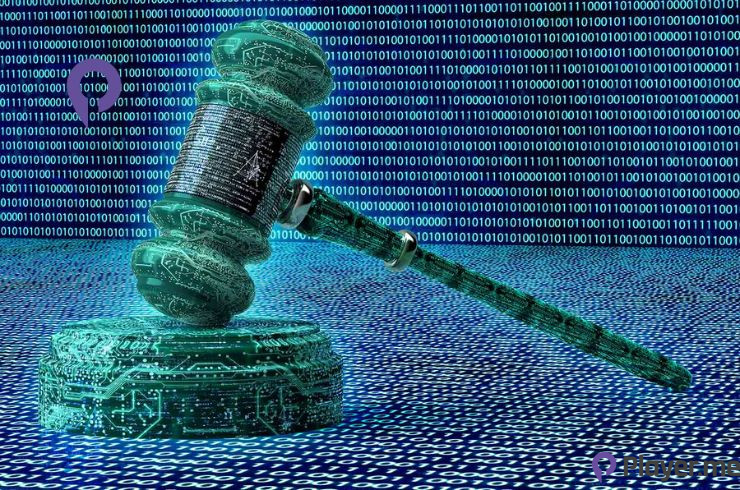The question of whether society should embrace Artificial Intelligence or reject it is a complex and multifaceted issue. Just like any controversial matter, there are strong arguments on both sides, and it’s likely that opinions would vary widely among jurors in a hypothetical court case.
The court case would likely involve expert witnesses from various fields, including technology, ethics, law, and economics, who could provide insights on these points. Jurors would need to weigh the potential benefits of AI against the risks and challenges, keeping in mind the need for regulations and safeguards to mitigate the negatives.
The legal profession, like many other industries, is indeed facing a significant transformation due to the advent of artificial intelligence.
AI and Its Use in the Legal Field
The use of AI in the legal profession comes with a dual challenge. On one hand, it has the potential to streamline and improve legal processes, making legal services more efficient and accessible. On the other hand, it raises concerns about job displacement, ethical considerations, and the need for quality control.
As demonstrated in the case of Steven Schwartz, it’s crucial for legal professionals to exercise caution and ensure the accuracy of the information provided by AI systems. The legal community will need to adapt to this evolving landscape by implementing regulations, quality control mechanisms, and ethics guidelines to harness the benefits of AI while mitigating its risks. The impact of AI on the legal profession will likely be an ongoing subject of debate and adaptation.
Also Read: ChatGPT’s Enhanced Interactive Functionality in Visualising and Engaging in Conversations
While that may have left many law firms reluctant to embrace such systems, Ben Allgrove, the chief innovation officer at international law firm Baker McKenzie, has a different interpretation.
“I don’t think that it is a technology story, it’s a lawyer story,” he says. “You’ve got to get through the lack of professionalism, and the lack of ethics, before you get to the fact that the tool was something he shouldn’t have been using.”
Where Does AI Fit in the Legal Field?
In essence, the adoption of AI in the legal field should go hand in hand with the upholding of ethical standards, professionalism, and accountability. It’s not just a technology story; It’s about how legal professionals integrate and utilise AI tools within the framework of their ethical and professional responsibilities.

Baker McKenzie’s approach to tracking and adopting AI in the legal profession reflects the ongoing transformation of the legal industry.
The use of AI in the legal profession is evolving, and law firms are finding ways to leverage AI technologies to enhance efficiency, reduce costs, and provide better legal services. As AI tools continue to improve and become more accessible, the legal industry will likely see broader adoption of AI-driven solutions. However, challenges such as cost, ethical considerations, and data privacy will need to be addressed as AI becomes more integrated into legal practice.
The idea of companies training their own smaller AI models on their own data is a growing trend in AI adoption. It can offer several advantages, including improved accuracy and data security. The integration of AI into the legal profession is changing the dynamics of legal services. It’s not about replacing lawyers but enhancing their capabilities and expanding access to legal information and assistance.
For more tech news check out player.me/category/technology.
5 Talking Points to Consider
As AI tools continue to evolve and become more user-friendly, they have the potential to bridge the gap between those who can afford legal services and those who cannot, making the legal profession more inclusive and accessible to a broader range of people. The use of AI in the hiring and firing processes, as well as in other aspects of corporate operations, raises important ethical and legal considerations.
Here are some talking points to consider:
1. AI in HR and Employment
AI tools are increasingly used in human resources and employment-related decisions, such as resume screening, candidate assessments, and even predicting employee turnover. While these technologies can improve efficiency, they need to be carefully regulated to ensure that they are not used to discriminate against employees or potential hires.
2. Legal Challenges
AI systems like DoNotPay and their legal use can sometimes blur the lines between practicing law and providing information or assistance. Legal challenges and questions about the licensing of such AI systems may arise, as they take on tasks traditionally performed by human lawyers.
3. Disclosure and Transparency
The requirement for lawyers to disclose the use of AI in court filings is a response to the need for transparency. It’s important for judges, opposing counsel, and the court to be aware of how AI was used in legal proceedings to ensure fairness and accountability.
4. Difficulties in Definition
As mentioned by Mr. Monaco, defining and policing the use of AI in legal research can be challenging, as AI is integrated into various aspects of technology. For example, legal professionals who use search engines or AI-driven research tools may unknowingly rely on AI to some extent.
5. Regulation and Ethics
The increasing role of AI in the legal profession requires a clear regulatory framework to address potential issues like accountability, bias, and transparency. Ethical guidelines and standards will be essential in guiding the responsible use of AI in law.
Closing Words
The legal and ethical aspects of AI in the workplace and the legal profession are still evolving. While AI can bring significant benefits, it also requires careful consideration and oversight to prevent misuse and ensure fairness, transparency, and adherence to the law. The ongoing legal challenges and regulatory developments will shape the future of AI in these contexts.
Frequently Asked Questions
How Does AI Fit in the Legal Industry?
In the legal industry, today’s AI can help automate routine tasks and streamline workflows, ultimately leading to increased efficiency and cost savings. When less time is spent on manual tasks and generating ideas from scratch, lawyers are able to dedicate more time to focusing on clients.
Is Baker McKenzie One of the Largest International Law Firms?
Baker McKenzie is one of the world’s largest international law firms, headquartered in Chicago. Founded in 1949 under the name Baker & McKenzie, it has 77 offices in 46 countries and employs 4,809 attorneys and approximately 13,000 employees.
How Can AI Tools Help Lawyers?
AI-powered legal tools have the potential to increase access to justice by making legal services more affordable and accessible. This is because it reduces the time to complete tasks, which means that law firms can pass those savings on to clients.
Author Profile
Latest entries
 GAMING2024.06.12Top 4 Female Tekken 8 Fighters to Obliterate Your Opponents in Style!
GAMING2024.06.12Top 4 Female Tekken 8 Fighters to Obliterate Your Opponents in Style! NEWS2024.03.18Elon Musk’s SpaceX Ventures into National Security to Empower Spy Satellite Network for U.S.
NEWS2024.03.18Elon Musk’s SpaceX Ventures into National Security to Empower Spy Satellite Network for U.S. GAMING2024.03.17PS Plus: 7 New Games for March and Beyond
GAMING2024.03.17PS Plus: 7 New Games for March and Beyond GAMING2024.03.17Last Epoch Necromancer Builds: All You Need To Know About It
GAMING2024.03.17Last Epoch Necromancer Builds: All You Need To Know About It





